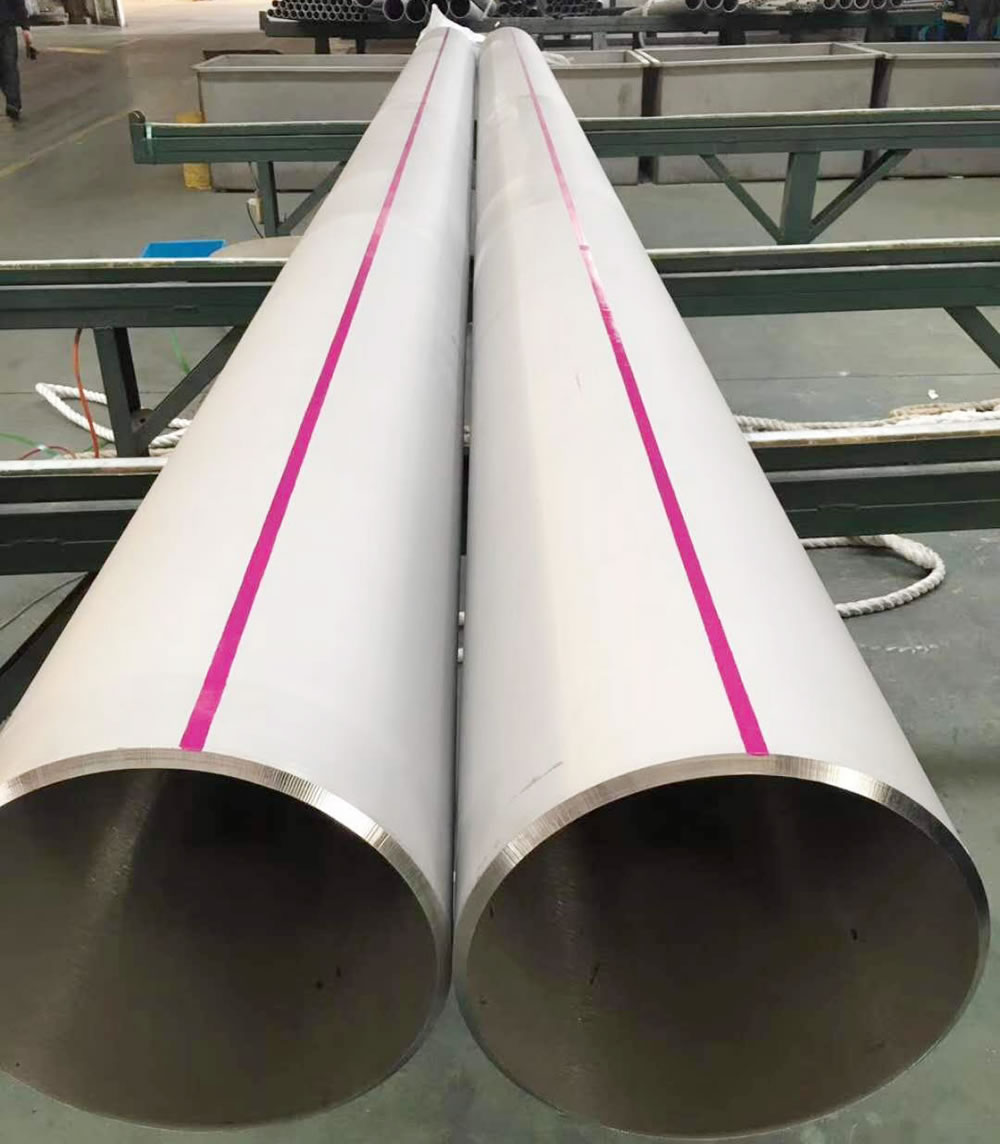
Super Duplex 2507 is a nickel-molybdenum-chromium alloy designed for applications demanding outstanding strength and corrosion resistance.
The nitrogen, chromium, and high molybdenum content results in excellent resistance to crevice corrosion and chloride pitting. Super Duplex 2507 is often found in offshore platforms, heat exchangers, chemical processing, seawater equipment, and in the petrochemical industry.
Duplex 2507 (UNS S32750) is a super duplex stainless steel with 25% chromium, 4% molybdenum, and 7% nickel designed for demanding applications which require exceptional strength and corrosion resistance, such as chemical process, petrochemical, and seawater equipment.
S32750, also known as SAF 2507, is a high-strength, corrosion-resistant super duplex stainless steel material. It is composed of elements such as chromium, nickel, molybdenum, and nitrogen, exhibiting excellent corrosion resistance and mechanical strength suitable for harsh environmental conditions.
Duplex Stainless Steels, also referred to as austeniticferritic stainless steels, are a family of grades having around equal proportions of austenite and ferrite.
These steels have a duplex microstructure which contributes to their high strength and high resistance to stress corrosion cracking.
Duplex steels offer high resistance to uniform and local corrosion because of their high content of nitrogen, chromium and molybdenum. Duplex stainless steels have good weldability.
Alloy 2507 (UNS S32750) is a super duplex stainless steel with 25% chromium, 4% molybdenum, and 7% nickel designed for demanding applications which require exceptional strength and corrosion resistance, such as chemical process, petrochemical, and seawater equipment. The steel has excellent resistance to chloride stress corrosion cracking, high thermal conductivity, and a low coefficient of thermal expansion. The high chromium, molybdenum, and nitrogen levels provide excellent resistance to pitting, crevice, and general corrosion.
The applications of S32750 super duplex stainless steel are:
There are three groups of duplex stainless steels that include the following:
Duplex 2507 is a super duplex stainless steel developed for applications that demand high strength and corrosion resistance. Alloy 2507 has 25% chromium, 4% molybdenum, and 7% nickel.
This high molybdenum, chromium and nitrogen content causes high resistance to chloride pitting and crevice corrosion attack and the duplex structure provides 2507 with exceptional resistance to chloride stress corrosion cracking.
Using Duplex 2507 must be restricted to applications below 600° F (316° C). Extended elevated temperature exposure can reduce both the toughness and corrosion resistance of alloy 2507.
Duplex 2507 has good mechanical properties. Often a light gauge of 2507 material can be used to achieve the same design strength of a thicker nickel alloy. The resulting weight savings can considerably reduce the overall cost of fabrication.
Typical Values (Weight %)
| Carbon | Chromium | Nickel | Molybdenum | Nitrogen | Others |
| 0.020 | 25 | 7 | 4.0 | 0.27 | S=0.001 |
2507 combines high tensile and impact strength with a low coefficient of thermal expansion and high thermal conductivity. These properties are suitable for many structural and mechanical components. The low, ambient, and elevated temperature mechanical properties of 2507 sheet and plate are shown below. All of the test data shown are for samples in the annealed and quenched condition.
2507 is not recommended for applications which require long exposures to temperatures in excess of 570°F because of the increased risk of a reduction in toughness. The data listed here are typical for wrought products and should not be regarded as a maximum or minimum value unless specifically stated.
The physical properties of grade 2205 stainless steels are tabulated below.
| Temperature °F | RT | 32 | -4 | -40 |
| Ft-lbs | 162 | 162 | 155 | 140 |
| Temperature °F | -76 | -112 | -148 | -320 |
| Ft-lbs | 110 | 44 | 30 | 7 |
| Temperature °F | 68 | 212 | 302 | 392 | 482 |
| 0.2% Offset Yield Strength, ksi | 80 | 65 | 61 | 58 | 55 |
| Ultimate Tensile Strength, ksi | 116 | 101 | 98 | 95 | 94 |
Values obtained for hot rolled plates (th ≤ 2"). Alloy 2304 must not be used for a long time at temperatures higher than 300°C (572°F), where precipitation hardening phenomenon occurs.
Density : 7,800 kg/m3 - 0.28 lb/in3
| Interval Temper °C |
Thermal expansion ax10M-bK-1 |
°C |
Resistivity (μ_ cm) |
Thermal conductivity (W.m-1.K-1) |
Specific heat (J.kg-1.K-1 |
Young modulus E (GPa) |
Shear modulus G (GPa) |
| 20-100 | 13 | 20 | 80 | 17 | 450 | 200 | 75 |
| 20-100 | 13 | 100 | 92 | 18 | 500 | 190 | 73 |
| 20-200 | 13.5 | 200 | 100 | 19 | 530 | 180 | 70 |
| 20-300 | 14 | 300 | 105 | 20 | 560 | 170 | 67 |
Hot Forming
2507 should be hot worked between 1875 F and 2250 F. This should be followed by a solution anneal at 1925F minimum and a rapid air or water quench.
Cold Forming
Most of the common stainless steel forming methods can be used for cold working 2507. The alloy has a higher yield strength and lower ductility than the austenitic steels so fabricators may find that higher forming forces, increased radius of bending, and increased allowance for springback are necessary. Deep drawing, stretch forming, and similar processes are more difficult to perform on 2507 than on an austenitic stainless steel. When forming requires more than 10% cold deformation, a solution anneal and quench are recommended.
Heat Treatment
2507 should be solution annealed and quenched after either hot or cold forming. Solution annealing should be done at a minimum of 1925 F. Annealing should be followed immediately by a rapid air or water quench. To obtain maximum corrosion resistance, heat treated products should be pickled and rinsed.

When you partner with Sunny Steel, you can stop worrying about meeting deadlines thanks to our responsive and timely service. You'll also say goodbye to unnecessary shopping around. Instead, you'll get white glove service from an expert who understands your needs and can get you the materials you need quickly.
